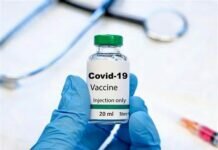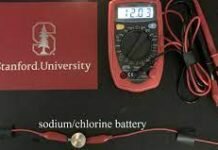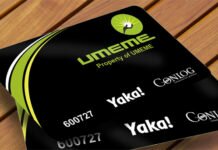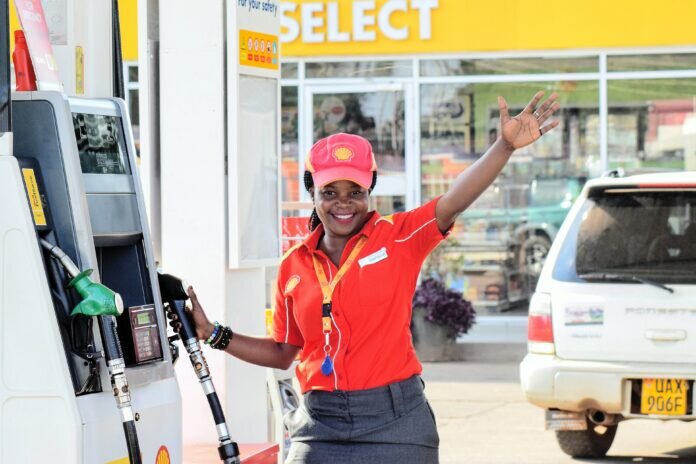By Moses Kaketo
The iconic Shell brand has been a significant part of Uganda’s heritage since it launched operations in the country in 1953. Shell grew to become a very dominant brand in Uganda’s petroleum retail market. Then Total and the defunct Caltex joined. Both companies experienced growth due to duopolistic market tendencies and price fixing. It was easy to succeed at the time as it did not require any great leadership; as long as you had the logistics to import fuel and retail it across the country, you made it.
The big three made a killing: limited suppliers against unlimited demand are a recipe for supernormal profits. And then the NRM government happened upon us. The economy was liberalized, as was the petroleum market. Then things started falling apart for the ‘big three’.
Many players joined the queue, and it was tough for the less prepared.
The liberalization of the economy
City Oil’s aggressiveness with quality eateries and quality service, especially to low-end clients, coupled with the 2008 global economic downturn and the emergence of the black market—rogue dealers and petrol stations with diluted fuels retailing at lower prices—negatively affected the big boys.
The first to close shop was Caltex. TOTAL is said to have had its own tough times thanks to their good strategy of establishing mini-supermarkets and fast food chains at their stations.
These developments are said to have threatened Shell Uganda so much that they had to exit to concentrate on downstream capital-intensive operations.
Vivo Energy was given the ‘lubengo’ (grinding stone) burden to carry—the aging equipment at petrol stations, low traffic at stations, and poor garage operations—which threatened the Shell brand.
The once dormant player, Shell, had turned into a sleeping giant.
How else would you describe a brand that has been around since 1952, with networks spread out countrywide that no other player could match? Even the sales and market share were in shambles.
Thanks to Vivo energy, the sleeping giant was awakened. Vivo Energy, within a short period, turned Shell’s fortunes around.
The turnaround
In March this year, Vivo Energy Uganda, the marketer and distributor of Shell-branded fuels and lubricants, marked the first decade of its operations in Uganda. The Vivo Energy story has been one of growth. Vivo Energy has not only changed the face of Shell, but it now offers more services, guaranteed quality, and differentiated products.
The VE took over distribution of Shell products in 2013. Since then, the company has invested a lot in improving the infrastructure. In its first decade, Vivo Energy Uganda’s story has been one of growth, significantly increasing the size of its retail network from 105 Shell service stations in 2013 to over 170 this year. Other highlights include the creation of a non-fuel retail offer, the growth of the lubricants business, the development of the commercial offer, garnering four ISO certifications, providing direct and indirect employment to Ugandans, and investing in impactful community initiatives in the promotion of road safety, education, and the environment. And the developments continue to deliver results.
New stations have been built. The company has also acquired a number of strategically located small player stations, like In-land service stations. Inside sources say the search for strategic locations continues and more stations are coming on board. The expansion drive has largely been informed by the growth and emergence of new towns and town councils outside High Way.
Currently, Shell boasts 170 stations, up from 85 before 2013. The strategy is to continue improving them. Information available reveals the majority of Shell stations have been smartened up, and work continues for the remaining stations.
What ails Vivo Energy?
Vivo Energy is a joint venture between Vitol Group, a Dutch firm Vitol, Helios Investment Partners, an African private investment firm, and Shell. The company was established on December 1, 2011, to distribute and market Shell-branded fuels and lubricants. VE launched a campaign to refurbish select Shell stores to offer a wide range of services to walk-ins and drive-in
All refurbished stations now offer a constellation of services, including grabbing a bite with coffee, doing some last-minute shopping at the mini-supermarket, getting a fuel refill by experienced attendants, and having your car tuned up.
Vivo Energy has doubled the size of the storeroom at the fuel depots. This ensures fuel availability at all times. In early 2015, VE constructed two large fuel tanks with a capacity of five million liters. That is ten million liters of extra capacity.
They launched a fuel safety campaign, with the emphasis that their fuel is monitored along the distribution chain from the coast up to the petrol station. This is to counter the bad image created by some dealers who adulterate fuel.
Customer segmentation
VE has studied Uganda’s customer behavior and segmented the market to offer responsive services. Statics reveal more than 300,000 motor cycles (boda bodas) are sold monthly in Uganda. That is a huge market for fuel. In the past, Shell used to turn away or neglect boda boda fueling at their stations. Not anymore. VE created special pumps for them.
Inside sources say Shell revenue from sales to this low-end segment of boda-boda riders has been growing. In response, Total followed.
Many people know how to drive but not how to maintain the car. With regular write-ups in the media about customer days and change-a-tyre competitions, Shell educated clients on a number of issues, including car maintenance, tire changing, and safety. Such customer awareness sensitization improved customer retention and new acquisitions. Shell has been visible in all media, promoting the brand. And it is working.
“The reaction from the market is excellent, as reflected in the sales. I can happily say we have grown, and we have seen swift growth in sales.” A senior official explained
Asked about their current market share in Uganda, the official said, “We can always do better. We are here to do business. To do business profitably and ethically, respecting the rules and standards of the country. Our strategy is simple: We will grow with the country and invest in it. We will seize all opportunities presented for us to develop Uganda.’’
In November last year, the Uganda Revenue Authority named Vivo Energy Uganda’s Top Tax Contributor. Vivo Energy Uganda is said to have sold over 500m litters of fuel in 2022.
I whatever, they do, they seek to harness the company’s brand as a top player to bring high-quality products to the widest audience and set new benchmarks for novelty, expediency, service, and reliability.
Some CSR…
Vivo Energy has, over the years, held several meaningful corporate social responsibility (CSR) schemes that directly benefit the community. These are producing results. The company’s market share has suddenly more than doubled to further cement its market leadership position. Among the many initiatives undertaken are road safety campaigns. So far, six primary schools in Kampala have benefited from the training.
read: A Bank on a Mission: How Equity is Shaking Up Uganda’s Banking Industry
The campaign aims to indoctrinate a road safety culture among Uganda’s future generation to increase road safety awareness and commitment among school-going children and help change their attitude and behavior on the road.
Road safety record in Uganda is not good going by statistics. It has deteriorated rapidly over the last few years, mainly due to the lack of appropriate road safety interventions, with the country registering 3,142 fatalities and 14,892 injuries caused by road accidents annually. The campaign targeted over 1,200 schoolchildren from 12 schools. Last year, in a bid to curb road accidents, Vivo Energy relaunched its award-winning road safety campaign, named ‘Tweddeko, and donated a consignment of road signage worth over fifty million shillings to the Uganda Police Force. Tweddeko is a Luganda word for “let us reconsider our ways” or “let us change our ways”.
read: Is MTN Uganda on the verge of becoming a bank? Are Ugandan banks ready for this monster?
Vivo Energy also partnered with Plastic Recycling Industries Limited, an initiative of Coca-Cola Beverages Africa in Uganda, to routinely collect plastic waste from its Shell service stations countrywide for recycling purposes.
Shell has also created partnerships in areas where they lack expertise, like operating the fast food joints at the fueling stations, to compete directly with City Oil’s Cafés.
read: Shell Vs TOTAL: who is the Goliath?
About the author: The writer is a marketing and distribution expert. He sees business in everything. He loves writing business news, reviews, and analyses. Reach him on or Twitter: @mkaketo LinkedIn:
also read: The rise & rise of Stabex International: now occupies No.3 after Shell & TotalEnergies
















































